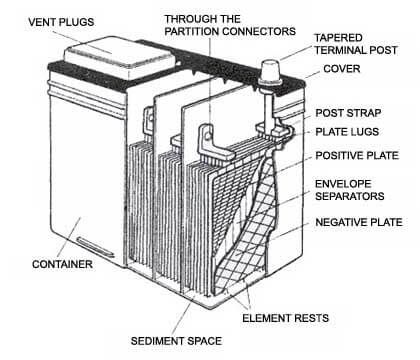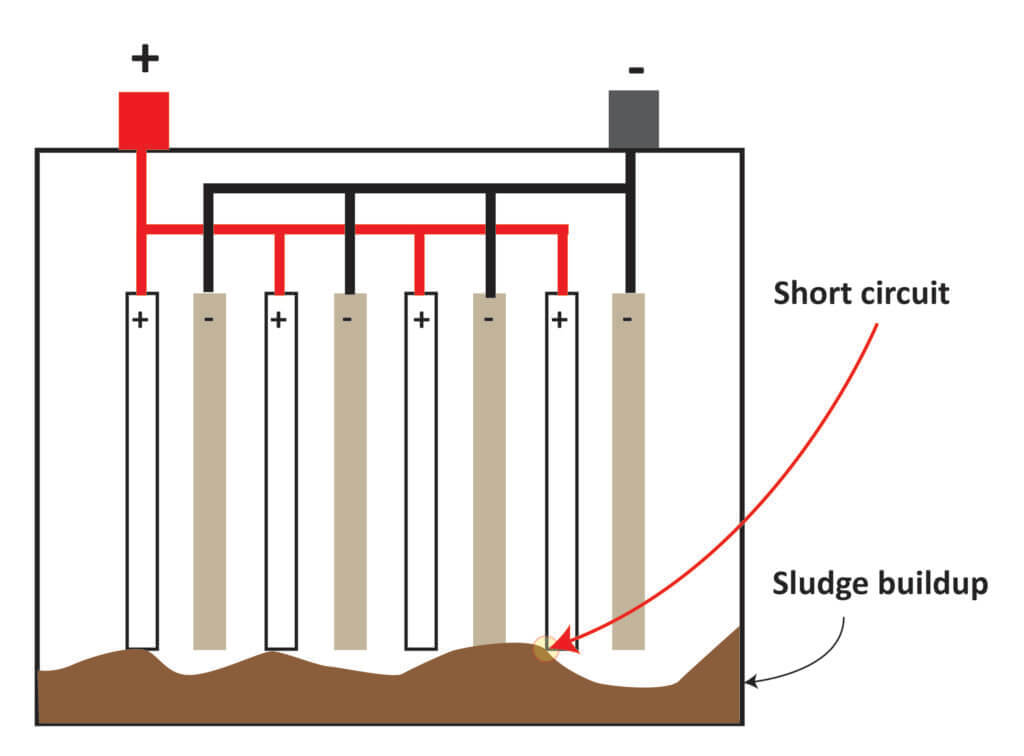Car Battery Won’t Stay Charged: Common Causes
Why Your Car Battery Won’t Stay Charged—And What to Do About It
Few things are more frustrating than when a car battery won’t stay charged. You charge it and think you’ve fixed the problem, only to return to a dead battery the next day. If this sounds familiar, you’re not alone. I’ve seen this issue countless times, and I can tell you right now, the problem isn’t always obvious from the outside. The real story lies within the battery itself, where chemical reactions dictate whether your battery functions properly or fails entirely. Let’s dive into the internal mechanics of a car battery and why it sometimes just won’t hold a charge.
1. Sulfation—The Silent Battery Killer
One of the most common reasons a car battery won’t hold a charge is sulfation—a buildup of lead sulfate crystals on the battery’s plates.
Here’s What Causes Sulfation—
• Letting the battery sit for too long without being charged.
• Consistently driving short distances that don’t allow for a full recharge.
• Undercharging due to a weak alternator or poor connections.
• Extreme temperatures, which accelerate the sulfation process.
How Sulfation Prevents Charging
Sulfation blocks the chemical reaction needed to recharge the battery. The lead plates inside the battery become coated with sulfate deposits, reducing the surface area available for chemical reactions. The result? Your battery either won’t charge fully or loses its charge quickly.
2. Internal Short Circuits—A Death Sentence for Your Battery
Inside your battery, thin lead plates are separated by insulating material to prevent them from touching. Over time, these separators can break down, leading to a short circuit inside the battery.
What Causes an Internal Short—
• Age and wear – The materials inside the battery degrade over time.
• Overcharging – Generates excessive heat, which warps the plates and weakens the separators.
• Excessive vibration – Loose battery mounts or rough driving conditions can physically damage the internals.

Why an Internal Short Prevents Charging
When a battery has an internal short, the voltage drops too quickly, and the battery won’t hold a charge no matter how long you try to recharge it. In severe cases, the short circuit can even cause a thermal runaway, where the battery overheats and becomes a fire hazard.
3. Plate Shedding—When the Battery’s Internals Fall Apart
Over time, the lead plates inside your battery can corrode, weaken, and even shed material into the electrolyte solution. This is a natural part of battery aging, but excessive corrosion leads to reduced capacity and poor charge retention. As the lead plate material builds up on the bottom of the battery, the material eventually shorts out two plates, killing the battery. This is often the cause when you encounter a battery that worked fine one day, but is completely dead the next day.
What Causes Plate Shedding—
• Acid Stratification— Battery electrolyte is a mix of sulfuric acid and water. When a battery sits unused for long periods, the acid falls to the bottom, causing over-concentration, which damages the plates
• Overcharging – Causes excessive gassing, leading to plate erosion.
• Deep discharges – Allow sulfation and other chemical reactions to attack the plates.
• Old age – No battery lasts forever, and corrosion happens naturally over time.
How Plate Corrosion Prevents Charging
If the plates degrade too much, they can’t hold energy as they should. This means that even if your alternator is working fine, the battery simply doesn’t have the structural integrity to store the charge effectively.
4. Loss of Electrolyte—When Your Battery Runs Dry
A lead-acid car battery relies on electrolyte fluid (a mixture of sulfuric acid and water) to facilitate the chemical reactions that generate electricity. If the electrolyte level drops too low, the battery can’t function properly.
What Causes Electrolyte Loss?
• Overcharging – Leads to excessive water evaporation.
• Extreme heat – Causes faster evaporation of the electrolyte.
• Cracked battery case – Allows fluid to leak out.
Why a Low Electrolyte Level Prevents Charging
Without enough electrolyte, the battery plates aren’t fully submerged, meaning they can’t participate in the chemical reaction necessary for energy storage. Once electrolyte levels drop too low, the battery stops accepting or holding a charge.
5. Acid Stratification—When Your Battery’s Chemistry Goes Wrong
In a healthy battery, the sulfuric acid in the electrolyte is evenly mixed. However, in a battery that isn’t fully charged regularly, the acid settles at the bottom, creating an imbalance. This is called acid stratification, and it reduces battery efficiency.
What Causes Acid Stratification?
• Frequent short trips – The battery never gets a full charge.
• Low charge states – Keeping the battery at less than 80% charge for long periods.
• Extended periods of inactivity – Batteries need regular use to maintain proper chemistry.
Why Acid Stratification Prevents Charging
Since the concentrated acid settles at the bottom, the upper part of the plates is left in a weaker solution, limiting their ability to participate in charging. Meanwhile, the lower section experiences accelerated corrosion, leading to a reduced lifespan.
6. Repeated Deep Discharges—Permanent Capacity Loss
A lead-acid battery is not designed to be fully drained before recharging. Repeated deep discharges can cause irreversible damage, where your car battery won’t stay charged.
What Causes Deep Discharge Damage?
• Leaving the headlights or interior lights on overnight.
• Letting the car sit unused for too long.
• A faulty alternator failing to recharge the battery properly.
• Parasitic Drain caused by:
• Faulty interior lights – A stuck glove box or trunk light can stay on and slowly kill the battery.
• Aftermarket electronics – Poorly installed alarms, remote starters, or stereo systems often cause parasitic drain.
• Malfunctioning modules – Modern cars have dozens of computers, and if one fails to go into sleep mode, it can drain the battery.
©, 2025 Rick Muscoplat
Posted on by Rick Muscoplat

